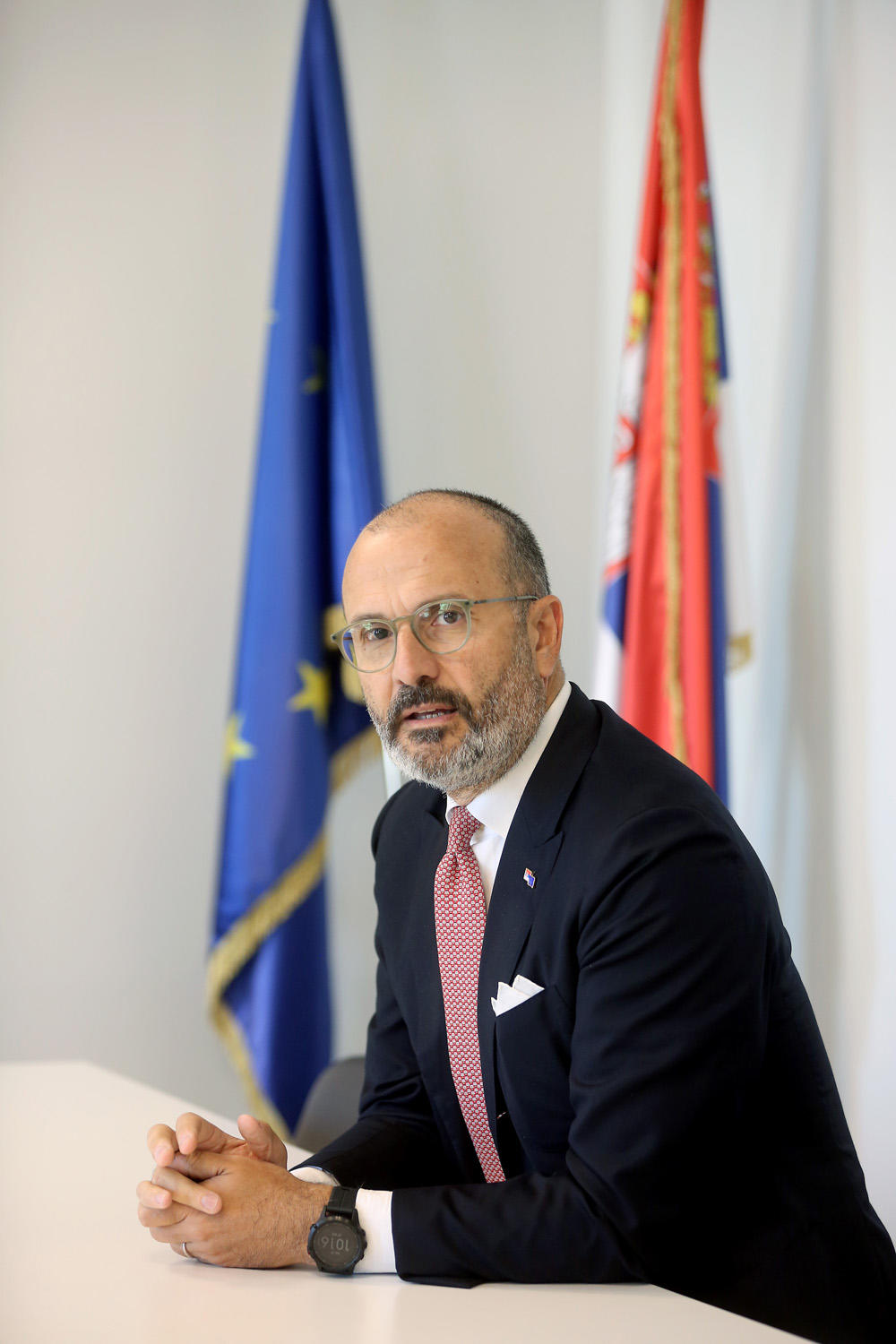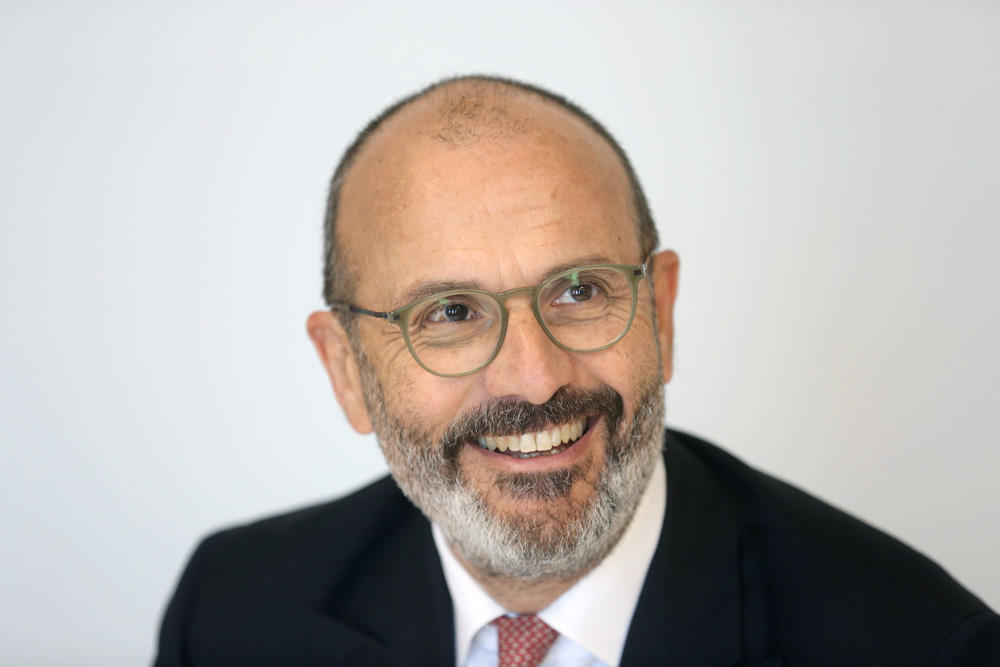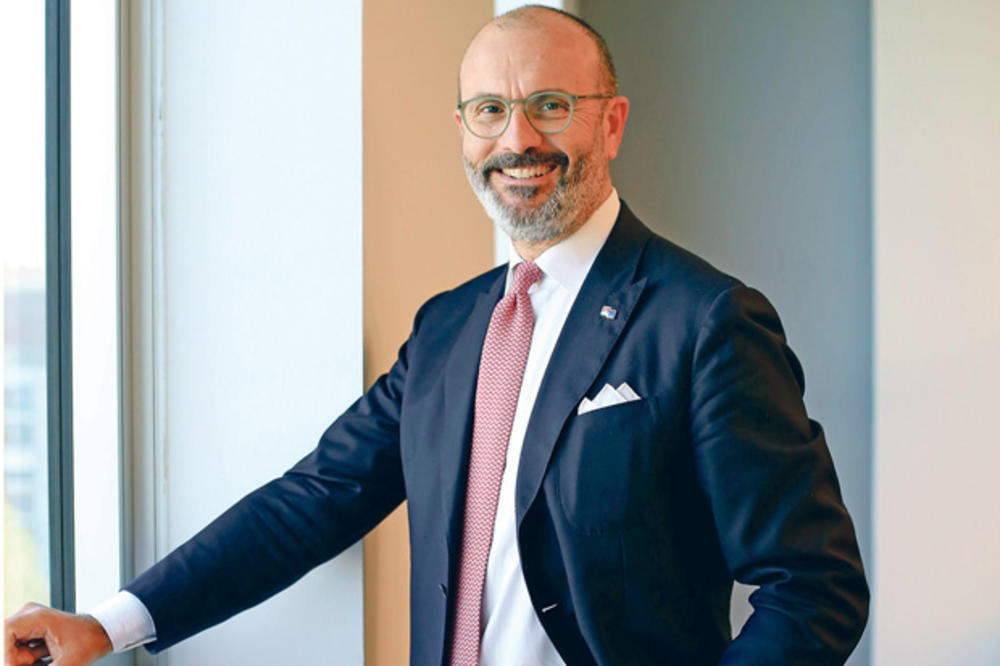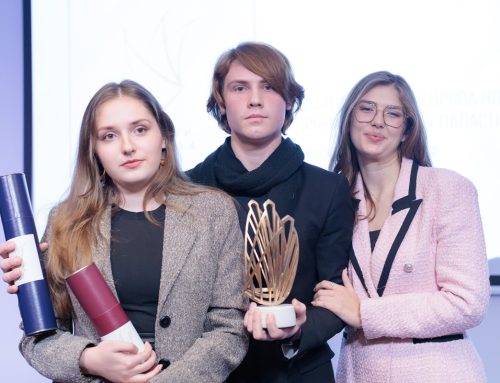Head of the European Union Delegation to Serbia Ambassador Sem Fabrizi gave an interview to Kurir daily as part of the newspapers’ Sunday interview section.
Kurir: What is your view of the European Parliament-facilitated dialogue between the government and the opposition? Certain opposition parties and movements have invited the EU to step in and help to improve the election process, but then decided not to take part in the dialogue…
– The European Commission has concluded that the National Assembly is not functioning properly, neither when it comes to its legislative functions nor the capacity to perform oversight over the executive branch of the government. Its conclusion has been translated into a strong call to improve procedures and create space for a genuine interparty dialogue. The latter aspect has become urgent as Serbia is getting ready for parliamentary elections in 2020. The European Parliament – drawing on its experience, reputation and democratic values – suggested to try to reconcile differences by engaging in a dialogue on conditions in which elections are held with all parliamentary political parties. Also, the EP intends to support the National Assembly’s functions even after the election in an effort to improve the working conditions of this body. The first such meeting took place on 9 and 10 October and brought together the representatives of the governing coalition, a large majority of parliamentary parties and a number of political movements. The meeting has yielded certain preliminary results and dialogues on specific topics, but what all the participants agreed on is the need for a way forward. The second meeting is scheduled for mid-November. I believe all political actors will be present because the dialogue needs to be inclusive in order to yield the desired results. The goal is to assist the National Assembly in becoming the place of genuine representative democracy.
Kurir: What is your view of the decision, made by parts of the opposition, to boycott the upcoming election?
– The EU has for years been calling on Serbia to improve its election process. What is of particular importance is a swift implementation of recommendations made by the OSCE’s Office for Democratic Institutions and Human Rights shortly following the previous election. A number of those issues have also been brought forward by political parties who are calling for a boycott. Those issues include equal media access, voting transparency, campaign funding etc. Last summer, the government finally kicked off this process and proposed a number of measures. One might say that the measures could have been proposed earlier, and one wouldn’t be wrong. However, what we now need is an impetus to follow through with and strengthen that process. The government and relevant authorities are responsible for tackling real issues and conveying clear messages by, among other things, engaging the entire opposition in the dialogue. All political forces should take part in a meaningful political debate. A strong government and a strong opposition are vital for any democracy. Free and fair elections are in everyone’s best interest, especially in the interest of citizens.
Kurir: Serbia has thus far opened a half of all negotiating chapters. Is this a usual pace or is Serbia slow? To what extent is 2025 a realistic date of Serbia’s EU accession?
– Serbia is making continuous progress on its EU path. So far, it has opened 17 chapters and provisionally closed two. This means that it has completed half of the journey. But, in order to close any chapter, you need meaningful reforms. It is clear what defines a faster pace of that journey: Serbia’s progress in implementing reforms. It has done much thus far, but more remains to be done, especially with respect a number of areas pertaining to the rule of law: independence of judiciary, freedom of media, economic governance transparency and a more efficient fight against corruption, to name a few. That is the only way to make progress on the EU path. And that is the only way for Serbia to make EU Member States speed up the accession process. There are no shortcuts. This a reform-led process. For the EU, the European perspective of Serbia and the entire Western Balkans remains a key strategic policy. Enlargement is embedded in EU treaties. The EU will not be complete without the Western Balkans. Last week, EU leaders decided to continue the discussion about and exchange views on the issue of enlargement before the next EU-Western Balkans leaders’ summit scheduled for May 2020 in Zagreb. We should all work together to reach new milestones.
Kurir: What areas have seen the biggest progress and what are the areas where there is room for improvement and more effective reform implementation?
Macro stability has been largely achieved, creating a strong inflow of foreign direct investment, larger domestic demand and increased exports. Last year saw a strong economic growth which continued to rise in 2019. However, it is important to follow through with structural reforms in order to achieve sustainability and wellbeing for the society as a whole: better fiscal planning; a fairer and more predictable business climate; public investment increase; restructuring of public enterprises; achieving level playing field for small and medium-sized business… On the other hand – but still in correlation to the economic reform – it is clear that further progress is needed in the broad area of rule of law, fundamental rights and good governance. The judiciary reform should be continued at the level of constitutional amendments which will ensure the impartiality and efficiency of the judiciary. This includes a comprehensive public administration reform, improved fight against corruption and organized crime with a solid track record; creation of an environment conducive to media freedom, including the adoption and implementation of a media strategy in the coming period. We are witnessing the signs of progress, but it has to be achieved, too.

Photo: Kurir – Marina Lopičić
– Accession criteria are clear on this issue – full normalisation of relations with Kosovo must be achieved prior to accession. This is not a new condition: it has been clear from the very beginning and Serbia has fully abided by that principle.
Kurir: The EU-facilitated dialogue on Kosovo between Belgrade and Pristina has stalled for almost a year due to Pristina government’s refusal to revoke taxes on Serbian imports. What is your view of the prospects of bringing the two sides back to the negotiating table?
– Following the most recent elections in Kosovo, High Representative Mogherini and Commissioner Hahn were clear that the EU expects a new government to be formed in Kosovo once all the relevant procedures have been completed. This is important so that Kosovo can proceed with tackling key issues, such as the EU-facilitated dialogue with Belgrade, and we expect all political actors to remain committed to that process. The EU has been continuously calling on Pristina to immediately revoke the taxes and pave the way for the dialogue to resume. For its part, Serbia should create an environment that is conducive to dialogue and restrain from any words, acts and measures that go against the spirit of normalisation, especially in international affairs. Time is of the essence. Status quo is not sustainable and there is no alternative to the dialogue. We expect Belgrade and Pristina to quickly abide by their obligations having in mind the direct correlation between the comprehensive normalisation of relations and immediate prospects of their European aspirations.

Photo: Kurir – Marina Lopičić
Kurir: The partition of Kosovo, delimitation with Albanians and recognition of Kosovo’s independence are some of the options which have surfaced as potential solutions. Which options does the EU deem acceptable?
– The EU facilitates the dialogue as a neutral side and supports both Belgrade and Pristina’s efforts. Therefore, it is up to the two sides to define the content and essence of the legally binding agreement which is expected to resolve all of the outstanding issues. It is their agreement for which they have to assume full ownership and responsibility. The solution cannot be forced by a third side. However, it is clear that the content of the agreement must fully respect the international law and the EU acquis; enjoy the support from a wider region; and underpin prosperity and tangible progress on the EU path.
*This designation is without prejudice to positions on status, and is in line with UNSCR 1244/1999 and the ICJ Opinion on the Kosovo declaration of independence.




